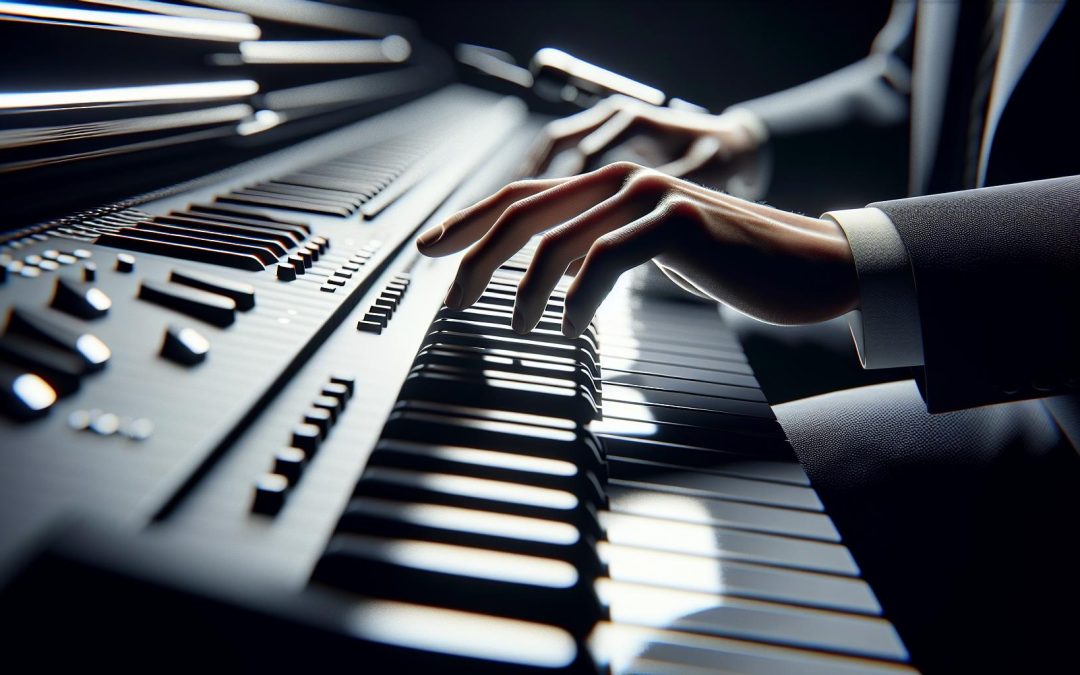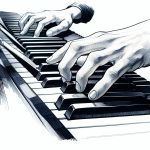If you've ever listened to a jazz pianist and wondered, "How do they make those keys sing like that?" you're not alone. It's all about the keyboard. For a jazz musician, the right keyboard can make all the difference. It's not just about the number of keys or the size of the keyboard, but also the touch, the feel, and the sound.
Advanced piano keyboards for jazz musicians are a breed apart. They're designed to meet the unique demands of the genre, offering a range of features and capabilities that go beyond the basics. Whether it's the ability to create complex harmonies, the versatility to switch between different sounds, or the sensitivity to respond to the slightest touch, these keyboards are built for jazz.
So, let's dive into the world of advanced piano keyboards, exploring what makes them special, and why they're a must-have for any serious jazz musician.
Features of Advanced Piano Keyboards for Jazz Musicians
Since the dawn of jazz, piano keyboards have come a long way. In the old days, keyboards were simple, driven by basic features. Today's keyboards, particularly the advanced ones, are cutting-edge, sophisticated, and designed with jazz musicians in mind. It's clear, modern keyboards offer an almost endless array of features. Let's delve into some of these innovative features.
Voicing options, for one, differentiate the rookies from the pros. A standard keyboard can usually produce different sounds- from the piano to the violin. But advanced keyboards, designed for jazz musicians, open up an entire panorama of tonal possibilities. This means they can sift through organ, saxophone, synthesizer sounds, and many more- at a moment's notice. It's like having an entire band at their fingertips!
The ability to multi-layer sounds is another notable feature. It allows the musicians to create complex harmonies, playing two or more different sounds simultaneously. The beauty of jazz music often lies in its complexity and layering different sounds can create that rich, layered aural experience that jazz lovers crave.
Touch sensitivity is perhaps one of the most essential features. After all, if the keys don't respond well, neither will the music. That's why these keyboards often offer graded, progressive hammer action. This mimics the feeling and response of an acoustic grand piano, letting the musician play with nuances, creation, and expression.
And, let's not forget about connectivity. In today's digital age, jazz musicians need keyboards that can connect to computers and other devices. Hence, modern keyboards are equipped with USB MIDI connectivity, so musicians can easily interface with digital audio workstation software.
The role of the keyboard in jazz music is undoubtably vital. And these advanced features make a notable difference in the creation, performance, and experience of jazz music. Their impressive capabilities far exceed those of their more basic counterparts. And, it's these features that offer jazz musicians the freedom and flexibility to fully express their unique musical vision.
Key Considerations when Choosing an Advanced Piano Keyboard
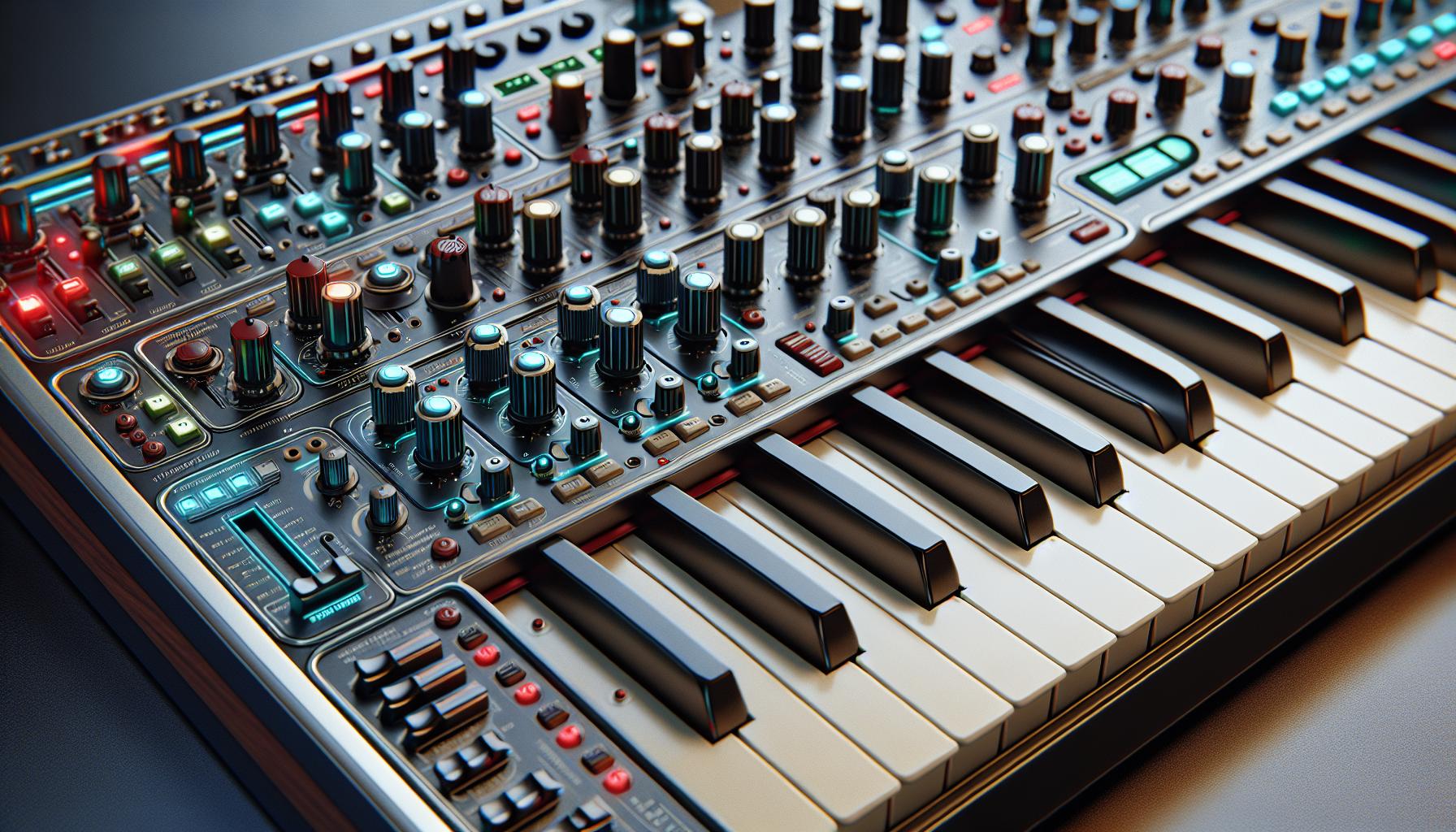
When browsing the market for sophisticated piano keyboards suited for jazz musicians, various factors need to be taken into account. These features go beyond the basics to personalize and elevate the musician's experience. It's a significant investment and that's why the selection shouldn't be taken lightly.
Voicing Options have revolutionized modern keyboards, giving jazz musicians the freedom to express their unique style. They also equip them with a sea of different sounds at their fingertips. Whether it's a trumpet blare or a metallic clink, these keyboards have got it all covered.
An essential aspect to look out for is the Touch Sensitivity of the keyboard. It imitates the response of an acoustic grand piano, enhancing the feeling of authenticity. Not all keyboard models are designed with this feature, making it a distinguishing option for the discerning musician.
Multi-layering Sound Capabilities offer musicians the opportunity to create rich, complex harmonies. The ability to simultaneously trigger multiple sounds with a single key press aids in enriching the texture of the composition. It's an indispensable tool for jazz musicians who continually strive for versatility and depth in their music.
Connectivity is yet another vital element. A keyboard having Computer and Device Connectivity simplifies the musician's workflow by enabling easy information exchange. It allows for the saving and transferring of musical ideas back and forth between devices, boosting productivity.
Price, of course, is a matter of consideration. Higher-end models certainly offer more features but come with a steeper price tag. Balancing between desired features and budget constraints will guide the purchase decision.
Through this careful evaluation, jazz musicians can ensure their choice of a piano keyboard perfectly matches their style and needs. Ultimately, the keyboard is not just an instrument but an extension of the musician’s creative reach.
Key Size and Configuration Options for Jazz Pianists
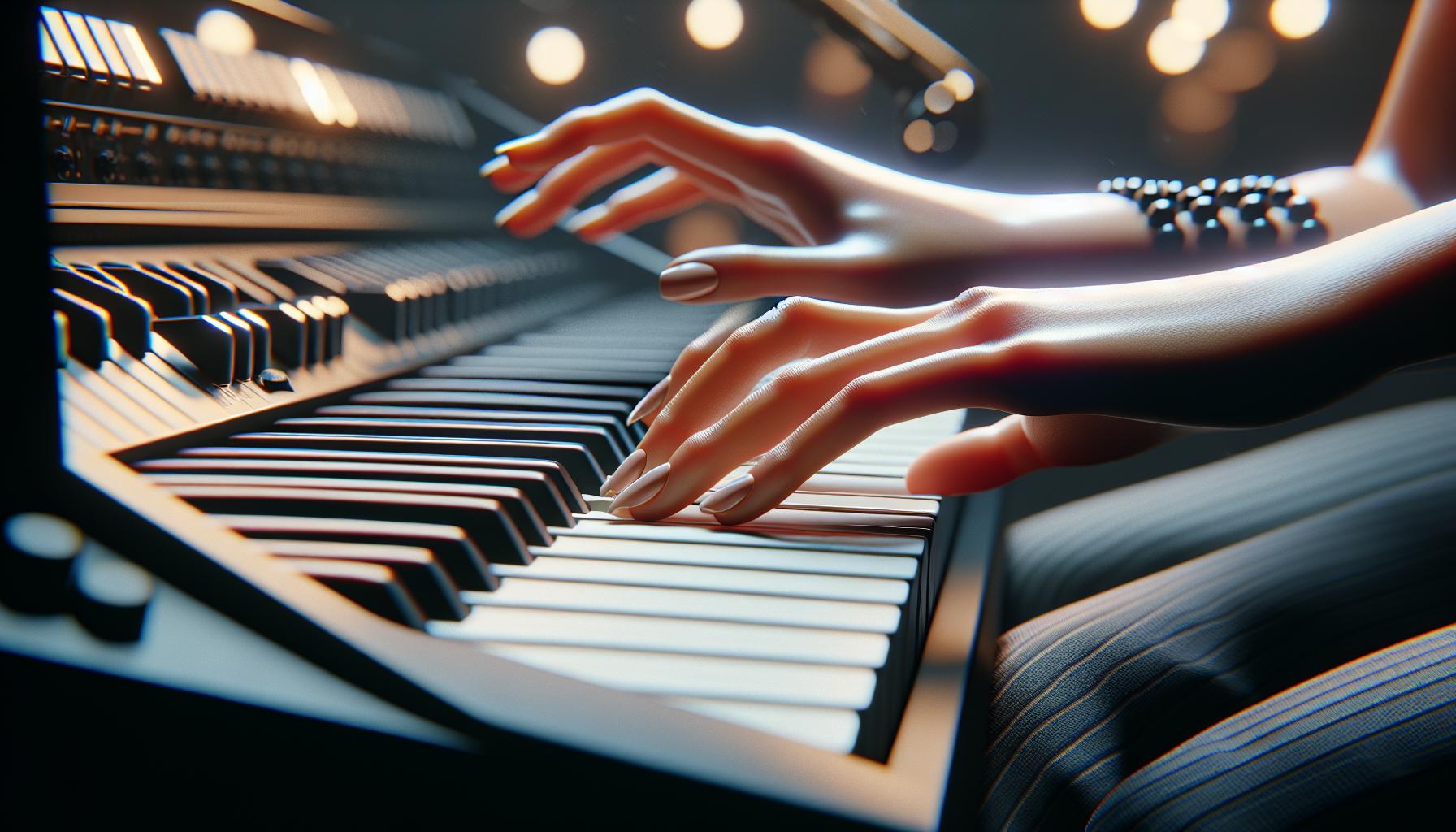
Key size and configuration can dramatically affect a pianist's performance. They play an integral part in the keyboard's overall playability and touch responsiveness. Full-sized keys are an absolute must for any professional jazz musician. They need to mimic the exact shape, size, and feel of conventional acoustic pianos to offer a familiar experience.
Musical keyboards come in a variety of styles, including 88-key, 76-key, and 61-key configurations. Traditionally, 88-key layouts are preferred by jazz pianists, providing the complete range of pitch: from the lowest to the highest possible notes. However, some musicians might find the smaller, more portable 76-key and 61-key keyboards suitable for performances with severe space constraints or traveling purposes.
When it comes to key configuration, being able to adjust the sensitivity of the keys is a feature that can't be overlooked. Touch sensitivity provides the player with the ability to convey a wide array of emotions through their music by merely changing their pressure on the keys. A fully weighted key system is often sought by jazz pianists as it mimics the weight and resistance of an acoustic piano, thereby offering a more authentic playing experience.
Moreover, the action style of the keys is a key factor to contemplate. The hammer action technology emulates the hammer mechanism of an acoustic grand piano, contributing to a naturalistic feel. On the other hand, synthetic ivory and ebony keys offer a different tactile sensation that some players might prefer.
With the rise of technological advancements, many digital keyboards now offer customizable key configurations. These provide the ability to tailor the playing experience to meet their unique preferences and requirements.
These various aspects of key size, and configuration should be evaluated and tested thoroughly by the purchaser. Ultimately, the perfect fit would be one that complements the jazz musician's style, comfort, and expressive needs.
Sound and Tone Options in Advanced Piano Keyboards
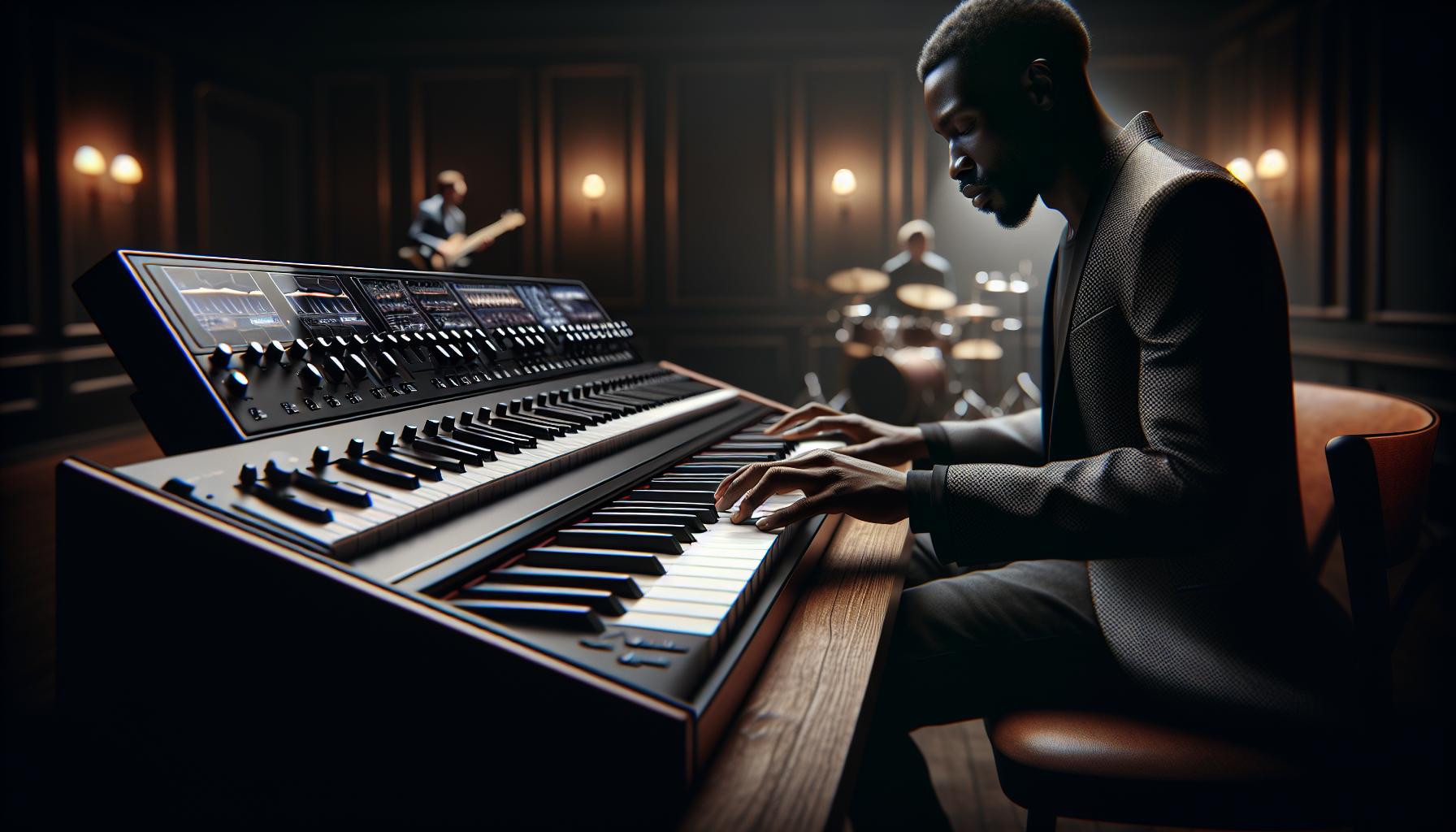
Onto another vital element in choosing an advanced piano keyboard: the sound and tone options. A jazz musician's instrument should aid their expressive needs. So, when it comes to a keyboard's sound and tone, they've got to pay keen attention to its authenticity and quality.
The sound engine of a keyboard is what generates the actual piano sound. For a jazz musician looking for an authentic sound experience, pianos keyboards with a Multi-Dimensional Morphing AiR Sound Source technology are the way to go. This specific technology accurately reproduces the rich, resonating tones and lingering reverberation of an acoustic piano.
Yet, remember - each artist's preference for tone is distinct. Some may favor the bright crispness of a concert grand, others prefer the warm richness of an upright piano. Therefore, musicians should seek a keyboard offering multiple acoustic piano tones.
Let's not forget about the integrated speakers. A keyboard's internal speakers play a big part in sound projection. Look for piano keyboards equipped with high-quality speakers that do justice to the sound engine's capabilities.
Apart from mimicking the acoustic piano experience, an advanced keyboard can offer a lot more multilayered sound options. From electric pianos to varying instrumental tones, they can give musicians a wide range of tonal possibilities on a single platform.
An essential feature for jazz musicians, in particular, is the split and layer function. It allows the left and right hands to play distinct sounds. One could play an acoustic bass on the lower end and a grand piano tone on the upper end – an exciting feature indeed!
Notable Brands and Models of Advanced Piano Keyboards
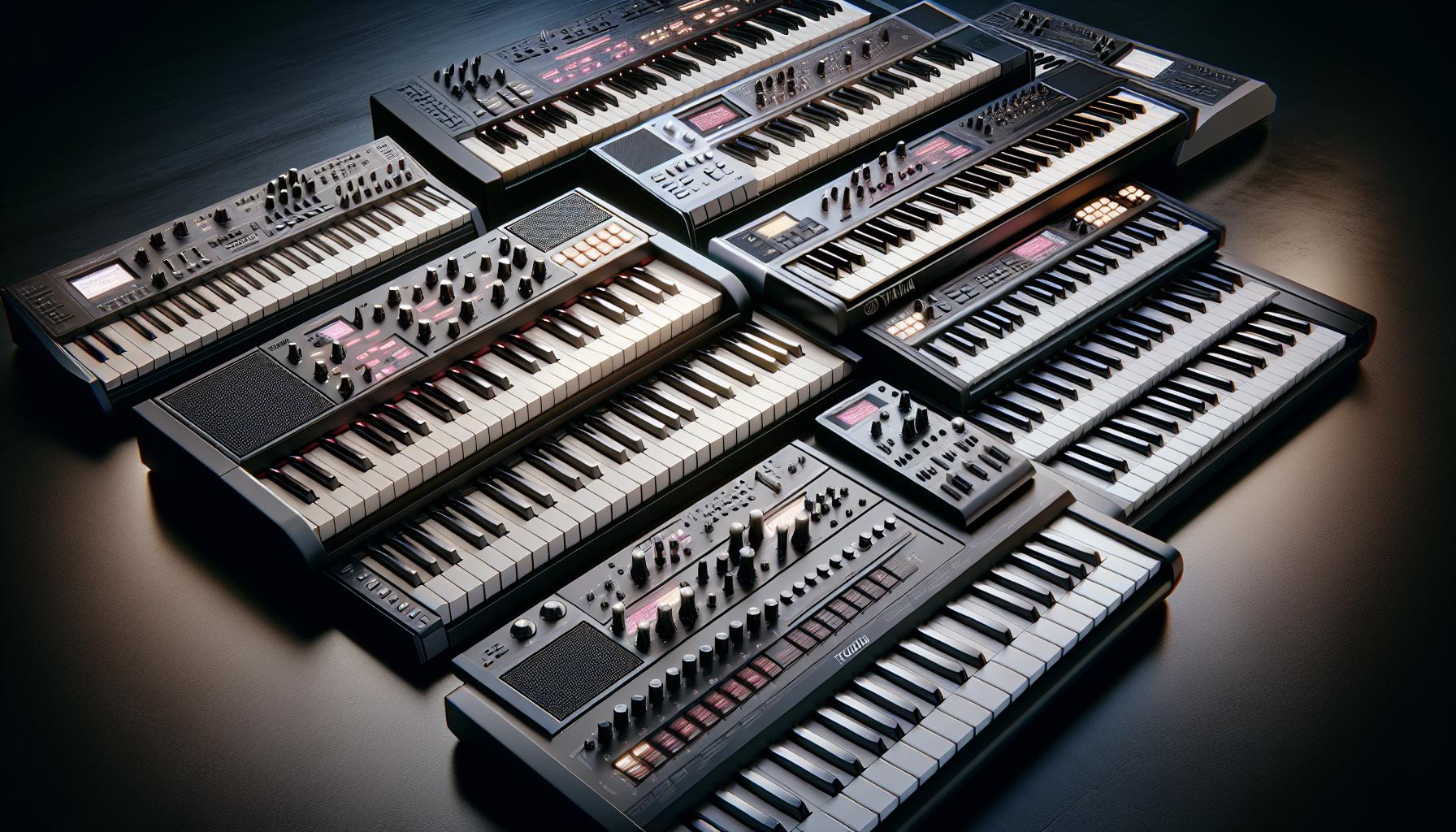
In the world of advanced keyboards, several brands have cemented their reputation for delivering high-quality instruments. Among these key players are Yamaha, Roland, and Casio. Each with their unique selling points, these brands have consistently produced models that exhibit a stellar level of quality and authenticity in sound.
Yamaha marks its territory with a blend of tradition and innovation. Their Clavinova series is a testament to this principle. Known for its pure CF sound engine, the Clavinova imparts an authentic representation of a grand piano's tonal range. Moreover, their DGX-660 model is often lauded by jazz musicians for its rich, multilayered sound options.
Roland, meanwhile, captures the jazz world's attention with its RD-2000 model. This model boasts of two independent sound engines, quality keyboard action, and advanced controller features. It's no surprise that it's considered a favorite in the jazz domain. However, it's the Roland F140R that truly shines with its SuperNATURAL Piano sound engine and PHA-4 standard keyboard, making it another excellent choice for jazz musicians.
Lastly, Casio holds its own with the Privia PX-160. Leveraging Multi-Dimensional Morphing AiR Sound Source technology, this model superbly produces rich and resonating piano tones. It's precisely these qualities that make it a fantastic tool for jazz ensembles.
Once a musician has crossed into advanced keyboard territory, they're also likely to recall brands like Korg and Nord. The Korg Kronos stands out with nine distinct synthesis engines and a massive sound library. As for Nord, their Stage 3 model offers an abundance of sound options that include layering and splitting capabilities.
Choosing an advanced keyboard isn't solely about the brand or model, but also considering the musician's needs and preferences. Whether it's Yamaha's tradition, Roland's innovation, Casio's technology, Korg's synthesis engines, or Nord's sound options, each brand offers something unique.
Conclusion
So there you have it! Picking the right advanced piano keyboard for jazz musicians isn't just about the brand. It's about finding the perfect balance between sound, tone, and authenticity. It's about understanding the unique features of Yamaha, Roland, Casio, Korg, and Nord and seeing how they align with your musical needs and preferences. Because at the end of the day, the best keyboard is the one that helps you create the most soulful, expressive jazz music. So go out there, explore your options, and let the music guide you to your perfect keyboard.
Harlan Kilstein began playing piano during covid with no piano background at all. He taught himself how to play learning what to do and what not to do.
Today he's an advanced intermediate player and can help you grow in your skills because he learned all this on his own.

